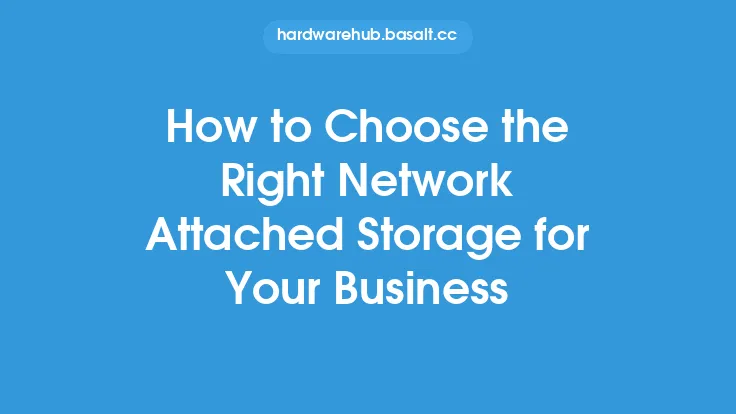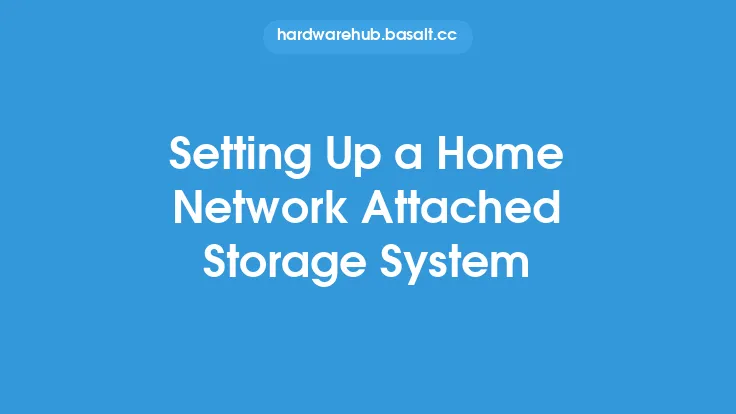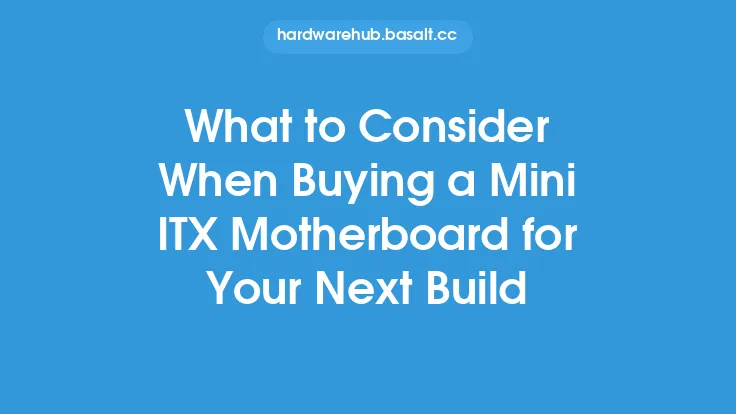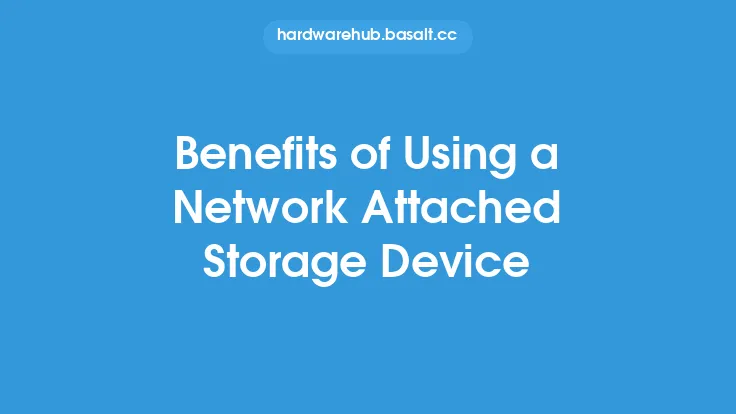When it comes to buying a Network Attached Storage (NAS) device, there are several key features to consider to ensure you get the right one for your needs. A NAS device is a centralized storage system that connects to your network, allowing multiple devices to access and share files. With so many options available, it's essential to evaluate the features that matter most to you. In this article, we'll delve into the top features to consider when buying a NAS device, helping you make an informed decision.
Key Considerations
Before diving into the specific features, it's crucial to consider your specific needs and requirements. How many users will be accessing the NAS device? What type of files will be stored (e.g., videos, documents, photos)? Do you need to access the files remotely? Answering these questions will help you determine the necessary features and specifications for your NAS device. Additionally, consider the compatibility of the NAS device with your existing network infrastructure and devices.
Storage Capacity and Scalability
One of the most critical features to consider is storage capacity. NAS devices come with varying storage capacities, ranging from a few hundred gigabytes to several terabytes. Consider the amount of data you need to store and the potential for future growth. If you anticipate your storage needs will increase, look for a NAS device that allows for easy scalability, such as adding more hard drives or upgrading to larger capacity drives. Some NAS devices also offer cloud storage integration, which can provide additional storage capacity and flexibility.
Processor and Memory
The processor and memory of a NAS device play a significant role in its performance. A faster processor and sufficient memory ensure that multiple users can access and transfer files simultaneously without experiencing significant slowdowns. Look for a NAS device with a dual-core or quad-core processor and at least 2GB of RAM. Some high-end NAS devices may also offer expandable memory options, which can be beneficial for large-scale deployments.
Connectivity and Networking
The connectivity options of a NAS device are vital for ensuring seamless integration with your network. Consider the types of ports available, such as Gigabit Ethernet, USB, and eSATA. A NAS device with multiple Gigabit Ethernet ports can provide faster data transfer rates and improved reliability. Additionally, look for a NAS device that supports link aggregation, which can combine multiple Ethernet ports to increase bandwidth.
Data Protection and Redundancy
Data protection and redundancy are critical features to consider when buying a NAS device. Look for a device that offers RAID (Redundant Array of Independent Disks) support, which can provide data redundancy and protection against disk failures. Some common RAID configurations include RAID 0, RAID 1, and RAID 5. Additionally, consider a NAS device that offers snapshotting, which can create a backup of your data at a specific point in time.
Security Features
Security is a top priority when it comes to storing sensitive data on a NAS device. Look for a device that offers robust security features, such as encryption, firewall protection, and access controls. Some NAS devices may also offer two-factor authentication, which can provide an additional layer of security. Consider a NAS device that supports SSL/TLS encryption, which can secure data transmission between the NAS device and connected devices.
Operating System and User Interface
The operating system and user interface of a NAS device can significantly impact the user experience. Look for a device that offers a user-friendly interface, making it easy to manage and configure the device. Some popular NAS operating systems include FreeNAS, OpenMediaVault, and Synology DiskStation Manager. Consider a NAS device that offers a web-based interface, which can provide remote access and management capabilities.
Power Consumption and Noise Level
The power consumption and noise level of a NAS device are essential considerations, especially for home users or those with limited space. Look for a device that offers low power consumption, which can help reduce energy costs and minimize its environmental impact. Additionally, consider a NAS device with a low noise level, which can be beneficial for home offices or living rooms.
Compatibility and Certification
Finally, consider the compatibility and certification of a NAS device with your existing devices and software. Look for a device that is compatible with your operating system, such as Windows, macOS, or Linux. Additionally, consider a NAS device that is certified by reputable organizations, such as VMware or Citrix, which can ensure compatibility with virtualization software.
Conclusion
Buying a Network Attached Storage device requires careful consideration of several key features, including storage capacity, processor and memory, connectivity and networking, data protection and redundancy, security features, operating system and user interface, power consumption and noise level, and compatibility and certification. By evaluating these features and considering your specific needs and requirements, you can find the right NAS device for your home or business, ensuring reliable and efficient data storage and sharing.





